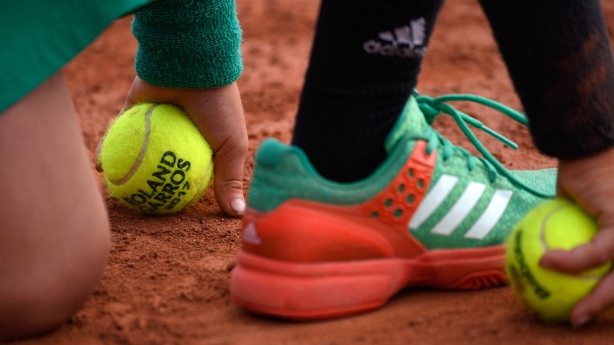A ban on betting sponsorship in the sport has been recommended by the final report of the Independent Review of Integrity in Tennis.
A panel led by British barrister Adam Lewis QC was appointed in early 2016 by tennis's governing bodies to look into the issue following high-profile media accusations and nearly three years later the final recommendations have been published.
The recommendations, which the sport pledged to implement in full from the outset, include limiting the sale of live data to reduce the opportunities for betting-related corruption, a ban on receiving sponsorship from betting companies and a reorganisation of the Tennis Integrity Unit.
The interim report published in April found neither evidence of a cover-up nor a major problem at the top of the game but Lewis described the lower levels of professional tennis as a "lamentably fertile breeding ground" for breaches of integrity.
One of the headline recommendations was the discontinuation of the sale of live-scoring data for the lowest levels of the professional game.
The International Tennis Federation (ITF) entered into a lucrative partnership with Sportradar in 2011 - the current deal runs until 2020 - creating a betting market for tens of thousands of matches offering very little prize money.
Sportradar argued preventing the sale of official data would open up a black market but the recommendation stands in the final report, although only the very smallest tournaments are now included.The decision represents a financial blow to the ITF, and the panel recommends the sports’ other governing bodies should contribute funds to cover this shortfall.

The last three years have seen the sport take several steps in anticipation of the panel's findings.
The new ITF World Tennis Tour, an overhaul of the foundation stage of the professional game, will launch next month and will result in a dramatic reduction in the number of players with a world ranking and therefore considered professional.
The TIU, meanwhile, has seen a substantial growth in its funding and workforce since 2016 and, of its 59 successful prosecutions since its inception in 2009, 23 have come since the publication of the interim report.
The panel were critical of the unit's effectiveness, saying: "While some of the insufficiencies in the TIU's historical approach are attributable in part to its inadequate resources, others are attributable to what has been, in the panel's assessment, an overly conservative and insufficiently proactive attitude on its part as to how best to detect, investigate and prevent breaches of integrity of tennis arising around the world."
The panel has proposed a new, independent, supervisory board for the TIU comprising an independent chair, four independent members and four members appointed by the governing bodies.

